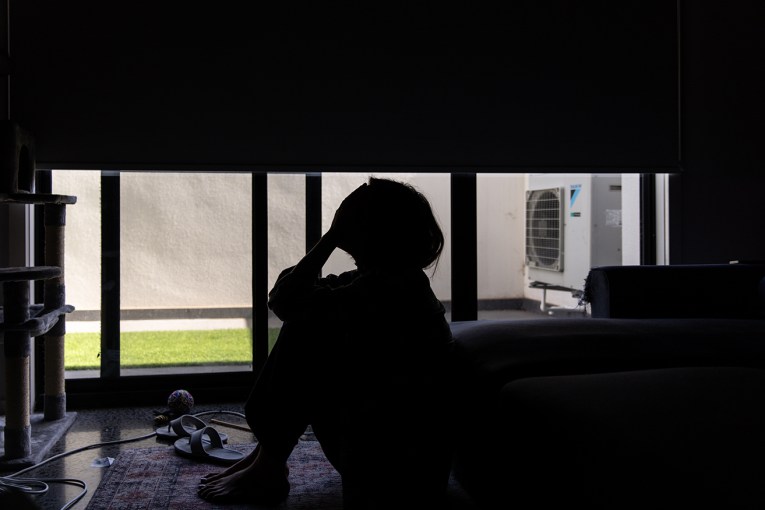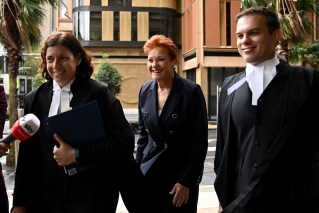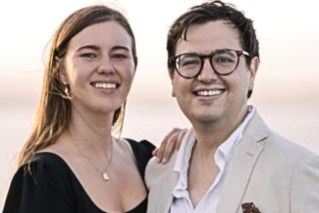COVID-19 surge and independent MPs play on Liberal minds after SA loss

Voter anxiety about COVID-19 and a strong showing by independent challengers are worrying federal government MPs after the South Australian Liberals were swept out of office on the weekend.
Outgoing Premier Steven Marshall resigned the Liberal Party leadership on Sunday after voters emphatically shifted their support towards the state opposition.
Federal Liberal MPs said that Mr Marshall was a casualty of COVID politics.
“Before December, he was on track to pick up five or six seats and we all know what happened on Saturday instead,” one MP told The New Daily.
Mr Marshall’s government opened the state’s borders in late November, just before the Omicron variant of COVID-19 began to surge, leading to him being dubbed the man who “ruined Christmas” as many South Australians spent the holidays in isolation.
“And it’s the older constituents, our traditional base, who have listened,” the federal Liberal said.
“With case numbers rising, we’re going to need to inoculate ourselves against that message. We need to make sure that [voters aged over] 65 feel reassured.”
Health and COVID
State issues – particularly a focus on the health system, renewable energy and ambulance “ramping” (i.e. extended delays for patients to receive medical care) – were doubtlessly highly persuasive in Saturday’s poll.
But the strength of Peter Malinauskas’ campaign from opposition is also worrying federal government MPs who fear they have left it too late to define Labor’s federal leader, Anthony Albanese, in voters’ minds.
Liberal strategists are highly concerned about the potential for COVID to play a role in the May federal election as the average daily number of new cases nears 47,000, or more than two-and-a-half times that recorded a month ago.
States’ experiences with COVID case numbers and policies have been highly variable, but with a winter surge forecast Liberals are worried a similar dynamic to that seen in SA will prevail federally in Western Australia and Queensland.
Independent challengers
Independent challengers in Liberal seats are also emerging as a key part of the post-election analysis likely to be of concern to the federal Liberal Party.
In the seat of Finiss, Independent MP Lou Nicholson was, as of Sunday evening, leading the polls with a swing of nearly 20 per cent towards her in what has been a safe Liberal seat since its inception.
That bodes poorly for federal Liberals who appear vulnerable to challenges from independent MPs across a range of traditionally safe seats.
The success of the independent MP in the traditionally safe Liberal seat of Mayo last election could now be mirrored in seats such as the marginal division of Boothby, where sitting member Nicolle Flint is departing and independent Jo Dyer is mounting a challenge.
Rob Manwaring from Flinders University says the showing of Ms Nicholson and others reflects a broader fracture on the conservative side of the political spectrum in Australia that threatens to be repeated federally.
“Many of the troubles of the Marshall government do mimic those of the Morison government,” Dr Manwaring said.
“What you’re seeing in Australian politics at the moment is a fraying of the centre-right politics.”
Liberal infighting
Tensions between rural and urban Liberals have long been present in South Australian politics.
Many members of the conservative wing of the state party perceived Mr Marshall as being too moderate, causing the government to be riven with infighting.
Federally, the party is facing challenges on both its wings, from right-wing parties such as One Nation and the United Australia Party but also from progressive independents who promise to blend the Liberal agenda with a focus on clean energy and clean politics.
“The rise of those moderate independent candidates and a number of moderate, safely held Liberal seats is causing a massive headache for the Morrison government as it did for Steven Marshall,” Dr Manwaring said.
“And there is something here about Marshall’s inability to reconcile the conservative wing and the liberal wing of the Liberal Party.
“This is part of a broader trend where moderate independents are trying to get a foothold in what you might describe as anti-Labor rather than safe Liberal seats.”
Finance Minister Simon Birmingham said on Sunday that Labor had run a negative campaign.
“That, of course, is something that does mean that some voters, potentially were tricked,” he said.








